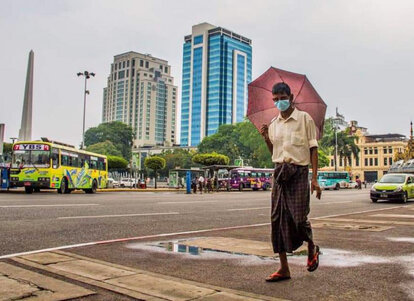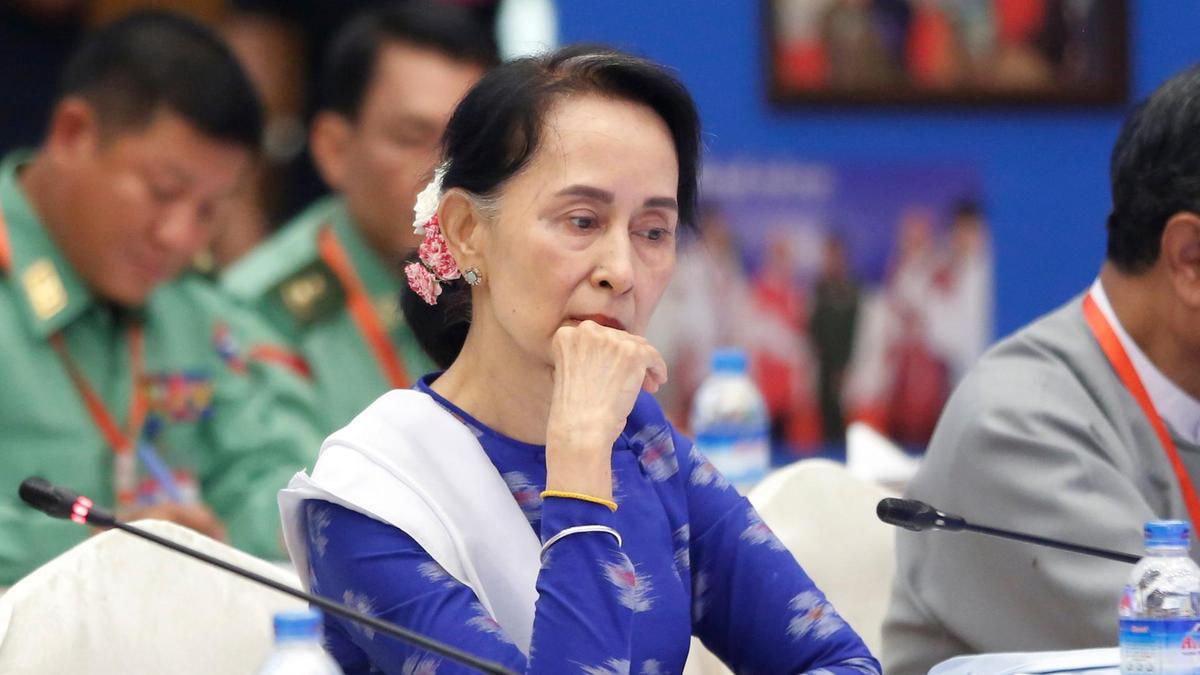The broken promise of Aung San Suu Kyi
When Aung San Suu Kyi’s National League Democratic (NLD) party unveiled its manifesto before the 2015 general election, one promise of the 20-page document was crucial: a constitutional reform to eject the military from parliament and from key cabinet positions.
With the end of the legislative period approaching, it is clear: Aung San Suu Kyi did not deliver. Her recent attempt to reform the constitution failed, and Myanmar remains a largely military-controlled state. Even after the scheduled election in November, the military is guaranteed 25% of the seats in parliament. It will also continue to appoint the ministers for defense, border and home affairs.
Some international observers had hoped that Aung San Suu Kyi's silence on the crimes against the Rohingya minority followed a secret calculation: that she did not want to compromise the military to get support from generals for major democratic reforms. If this was the case, it failed miserably.
The NLD had campaigned hard to amend the military-drafted 2008 constitution. However, their first wave of efforts to amend the constitution ended with the assassination of U Ko Ni. The prominent lawyer was NLD’s sole expert to find possible legal solutions to amend the constitution, including a reduced role of the military.
The next big effort was the NLD-initiated Charter Amendment Committee, approved and founded by the parliament in February 2019. After 11 months of cross-partisan consultations, the Committee put two bills to vote that were utterly one-sided: the proposed amendments were identical to 114 suggestions previously made by the NLD.
In principle, the suggestions were reasonable and decent, demanding a more democratic constitution. For example, the amendments would have reduced the percentage allocation of parliamentary seats for the military over time: down to 15% after the 2020 election, 10% after 2025 and 5% after 2030. The role of the commander-in-chief during the emergency period would have been weakened, too.
However, as expected, the military made use of its blocking minority. Because constitutional amendments require a three-quarters majority, the army, with its 25% fraction, can easily prevent such initiatives. In the end, only minimal changes were passed, those concerning terminologies or redundant articles in the constitution.
From the beginning, it was clear that it would be difficult for NLD to overcome the blocking minority. But Aung San Suu Kyi and her party made major mistakes. The NLD played a one-man show in trying to fulfill its electoral promise. It would have needed the involvement of other stakeholders, including pro-military Union Solidarity and Development Party (USDP) and ethnic political parties. The NLD and its famous leader failed to unite the different groups in parliament and thus did not pressure the military with a joint force.
Instead, the NLD-led Committee submitted the bills after insufficient negotiation with other political parties. It also ignored an amendment bill submitted by the USDP and the military jointly in May 2019 that would have allowed states and regions to elect their own governments. Again, the NLD failed in figuring out a deal with moderate parts of the army despite Aung San Suu Kyi’s soft stand vis a vis the military in the Rohingya crisis.
Analysts criticized the NLD for using the bills to build on their next election campaign. This may be a motive. The NLD called for a rare public rally for constitutional reform in downtown Yangon in February 2019. In contrast to previous rallies, the NLD did not invite other parties to join.
Using the important charter reform as a public stunt might not have been necessary for the NLD. The party has a definite advantage with the nation’s sweetheart Aung San Suu Kyi to win the election. The NLD leader is still a national hero. Defending Myanmar against international criticism in the Rohingya crisis has increased her domestic popularity. This month, she started her first Facebook account to inform the public about the fight against COVID-19 and gained more than 1.7 million followers within one week.
In addition, the current global pandemic helps the incumbent government as it creates an opportunity to demonstrate strength. If the government appears to have the outbreak under control, Myanmar’s people may vote again for the NLD government – under the same constitution that the NLD promised to change.
Hninwint Naing and Aung Thu Hein are Executive Program Managers in FNF Myanmar.

To date, there are 150 reported COVID-19 cases and five deaths.
